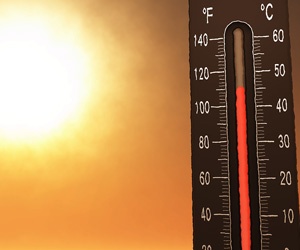Florida’s hot and humid climate can do a number on both your home and your wallet. High temperatures and sticky air mean your cooling system works overtime, unless your home has good insulation. In our area, insulation for Florida homes isn’t just a bonus, it’s a necessity. It helps prevent heat from getting in, keeps your indoor temperatures stable, and cuts down on your energy bill. Let’s take a deeper look at the importance of insulation for your Florida home or business.
How Insulation Works in Florida’s Heat and Humidity
Two words that best describe our weather in the Sunshine State are heat and humidity. Thankfully, we have insulation to help save the day from them both. Because heat travels from hot outdoor areas, like your roof or exterior walls, towards cooler air-conditioned spaces, your home needs something to stop it or at least slow it down. Insulation does the trick. It acts as a shield and slows the movement of heat from outside into the cooler air inside your home. Without proper insulation, this heat seeps in, forcing your A/C to work harder.
But insulation isn’t just for heat, it also helps control moisture. Insulation, especially when combined with air sealing, helps keep humid outdoor air from getting in, preventing condensation on cool surfaces, and creating a protective envelope around your home. As a result, you’ll have a year-round way to keep your home comfortable and energy efficient.

Key Benefits of Insulating Your Florida Home or Business
Lower Cooling Costs
With essentially two seasons in Florida- hot and hotter, your energy bills can easily skyrocket trying to keep your home or business cool. But with the right types of insulation, your A/C won’t have to run as long, lowering your electricity use, and significantly reducing your summer energy bills.
Improved Comfort Year-Round
Sit back and relax in a comfier home or business. Insulation and air sealing help maintain steady indoor temperatures, prevent “stack effect” in your upstairs rooms, and eliminate random hot spots and stuffy areas.
Moisture Control and Mold Prevention
Insulation and air sealing together create moisture resistance to keep humid air outside, and reduce indoor condensation. They protect against mold and mildew, improve indoor air quality and protect your home’s structure from wood rot
Reduced HVAC Strain
Florida air conditioners wear out sooner than those in cooler climates because they take a beating constantly trying to keep us cool. Installing proper insulation in your home or business is essentially a gift for your AC unit. It allows it to work less, decreasing its wear and tear and often, even extending its lifespan. With a lighter workload, many new homes may even function well with smaller AC units. Insulation and air sealing improve the efficiency and reliability of the AC units in commercial buildings too, helping them run more efficiently.
Best Insulation Options for Florida Homes and Buildings
Fiberglass Insulation
Fiberglass insulation is one of the most widely used insulation materials because it’s affordable, fire-resistant, and works well in attics and walls. For the most effective results, combine it with air sealing. Aim for a recommended insulation level of R-38 to R-49 in your North Florida attic.
Spray Foam Insulation
Spray foam is a top choice for hot, humid climates like ours. It not only insulates, but also air seals in one easy step while providing a high R-value. Available in open-cell (lightweight) and closed-cell (high moisture resistance), spray foam insulation has a higher upfront cost but delivers superior performance and energy savings thanks to its air sealing and insulating benefits.
Cellulose Insulation
Cellulose insulation is growing in popularity thanks to its eco-friendly composition of recycled paper fibers. This dense material is excellent at filling gaps, has good thermal performance with an R-value of R-3.5 per inch, and is ideal for upgrading existing homes.
Attic Insulation (A Top Priority)
Your attic is one of the most important places to insulate and air seal in your Florida home. Most air leaks are found in the attic, giving it the biggest impact on the comfort and energy efficiency of your entire house. Upgraded attic insulation can help you save an average of 15% on your heating and cooling bills and give you the best ROI of any energy efficiency improvements.
Commercial Insulation
When it comes to commercial buildings, insulation and air sealing are essential for Florida offices, warehouses, and retail spaces. Not only do they reduce each business’ energy costs and meet our state’s building code requirements, but employees and customers will enjoy the improved comfort of an energy-efficient building.
Energy Savings and Tax Incentives
When you’re looking to upgrade your insulation don’t forget to investigate all the ways you can save. Federal and local programs offer incentives such as tax credits and rebates to save you money on energy upgrades. The federal Inflation Reduction Act offers homeowners a 30% tax credit (up to $1,200 a year) for insulation upgrades, while the City of Tallahassee offers additional rebates to qualifying electric customers.
We’re Here to Help You Beat the Heat
Home insulation isn’t just for everyone up north. As a Florida homeowner or builder, it’s a smart investment that keeps paying off in improved comfort, lower energy bills, a smaller environmental impact, and a healthier, more resilient home or building throughout the years.
Not sure if your insulation is doing its job? Count on Allweather Insulation for tailored insulation solutions for your new or existing Tallahassee home or business. We’ve been a staple in our Tallahassee community since 1955 that local builders and homeowners know they can trust. Contact us today to learn more and schedule your free estimate.
References
Florida Department of Environmental Protection. (2020). Florida Green Lodging Program — Energy Efficiency Best Management Practice. floridadep.gov
My Florida Home Energy. (2015). Insulation — Energy Education Library. myfloridahomeenergy.com
U.S. Department of Energy. (n.d.). Insulation. energy.gov
U.S. Department of Energy. (2022). Inflation Reduction Act: Residential Energy Efficiency Tax Credits. allweather-insulation.com


